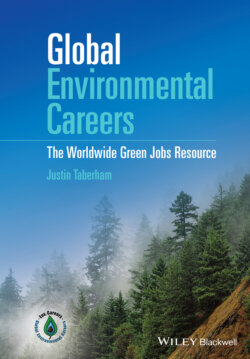Читать книгу Global Environmental Careers - Justin Taberham - Страница 111
Top Tips
ОглавлениеGet the lay of the land. The purpose‐driven economy is forever evolving and the jobs market right along with it. Make it your business to read and research as much as you can about the work you hope to do and the players in that space. Cultivate a deep understanding of the issues at play, because environmental work is increasingly nuanced and sophisticated.
Identify your values and traits. Zero in on what guides how you behave and what has shaped your life. This will help inform the language you use in composing your personal brand and how you develop a compelling narrative about who you are and why you are valuable to potential employers. It will also help you to align your core values to the types of organisations you pursue for employment and to determine what attributes of an employer and position are non‐negotiable for you.
Identify your superpower. There are few direct paths to green careers. Many leaders in this space started out in roles that had nothing to do with it – such as in engineering, marketing, or operations, among others. Before you determine which route to take, you should identify your ‘superpower’ skills, which can help set you apart. This can be anything from strategy to communication to project management to programming.
Talk about your accomplishments, not your past positions. Providing a laundry list of your previous roles and employers may seem like the default approach in job applications, but it’s not especially useful to hiring managers. Instead of framing things in terms of what you were tasked with doing, present your background in terms of what you did do and what impact it had. Talk about the results you have delivered in concrete terms. Did you help remediate former brownfields? Secure funding for a habitat protection project? Develop a software that monitors the migration of ocean debris? These are the types of details that really communicate what you have to offer.
Cultivate your emotional intelligence. Effective sustainability leaders align their intellectual intelligence with their emotional intelligence, and organisations are waking up to that fact. Just look at all the mindfulness courses that major companies like Google are offering their employees. They understand the importance of being able to keep your ego in check and empathise with other people, especially when things are fraught, and solutions seem hard to find. Emotional intelligence is also connected to the ability to coordinate with others and manage teams of people, which are crucial skills when working towards an environmental mission.
Shannon Houde is an ICF‐certified career and executive coach who founded Walk of Life Coaching, the first international career coaching and professional development advisory business focused solely on the social impact, environmental, CSR, and sustainable business fields. Get in touch to join our wider network or to book a coaching session.
Source: Shannon Houde, Career, Executive, and EI Coach, Walk of Life Coaching, UK/USA. www.walkoflifecoaching.com. © John Wiley & Sons.
